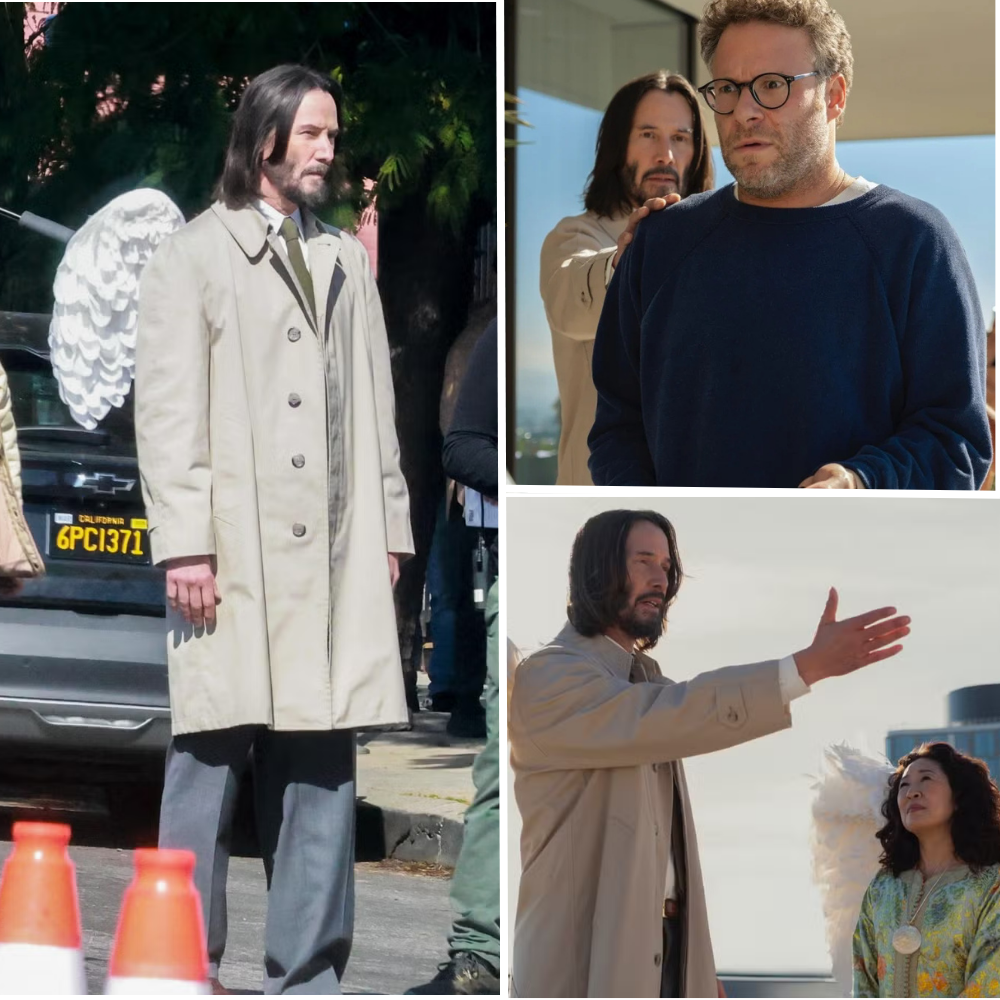
In the glittering chaos of Hollywood’s fall lineup, few films dare to blend celestial whimsy with the gritty underbelly of modern inequality quite like Good Fortune. Directed, written, and starring Aziz Ansari in his feature directorial debut, this 2025 release—fresh off its Toronto International Film Festival premiere on September 6 and wide U.S. rollout on October 17—casts the eternally enigmatic Keanu Reeves as Gabriel, a bumbling angel stripped of his wings and thrust into the unforgiving streets of contemporary America. What begins as a lighthearted body-swap farce evolves into a poignant meditation on wealth, purpose, and the quiet ache of isolation, revealing a side of Reeves that’s as raw and vulnerable as it is riveting.
Gabriel isn’t your typical haloed harbinger of divine intervention. Perched high above a bustling city, he watches over humanity with a mix of bemused detachment and quiet longing, his days filled with mundane tasks like nudging drivers to put down their phones. Clad in a shabby trench coat that mirrors his frayed spirit, Reeves infuses the character with a world-weary grace reminiscent of classic cinematic seraphs, yet grounded in the actor’s signature understated intensity. But when Gabriel’s latest assignment goes spectacularly awry—a well-intentioned scheme to teach a lesson about money’s hollow promises to a downtrodden gig worker named Arj (Ansari)—the fallout is both hilarious and heartbreaking. Arj, scraping by on odd jobs in a gig economy that chews up dreams and spits out despair, swaps lives with his oblivious billionaire boss, Jeff (Seth Rogen), a venture capitalist whose life of excess feels like a cruel cosmic joke.
As the plot untwists into a whirlwind of mistaken identities and escalating mishaps, Gabriel finds himself demoted to mortal form by his no-nonsense superior, Martha (a sharp Sandra Oh). Suddenly wingless and wandering the earth, the angel grapples with the very human frailties he once observed from afar: the sting of rejection, the warmth of a forbidden cigarette, the simple joy of greasy fast food. Reeves, known for his stoic action-hero personas in franchises like The Matrix and John Wick, leans into this vulnerability with disarming authenticity. His Gabriel isn’t just inept; he’s profoundly alone, a celestial outsider yearning for connection in a world that equates fortune with bank accounts rather than fleeting moments of kindness. Scenes of him navigating urban anonymity—staring longingly at couples in cafes or fumbling through small talk with strangers—elicit not just laughs but a deep, empathetic pang, exposing the loneliness that has long simmered beneath Reeves’ public persona.
Ansari’s script, born from his post-Being Mortal pivot toward more personal storytelling, weaves sharp social satire with unexpected tenderness. The film critiques the widening chasm between the haves and have-nots, showing how wealth warps empathy while poverty sharpens resilience. Rogen’s Jeff, initially a caricature of tech-bro entitlement, undergoes a humbling arc that forces him to confront the emptiness of his gilded cage. Supporting turns from Keke Palmer as a wise-cracking ally and Joe Mande add layers of levity, ensuring the runtime never drags despite its thematic heft.
Critics have hailed Good Fortune for its tonal balance, with an impressive 78% on Rotten Tomatoes praising Reeves’ “heavenly comedic timing” that elevates Ansari’s socially minded humor. Filming wrapped amid Reeves’ real-life recovery from an on-set injury in early 2024, a testament to the production’s grit. Yet it’s Reeves’ emotional core that lingers: in a climactic moment of quiet despair, as Gabriel questions his purpose amid the ruins of his meddling, audiences report leaving theaters misty-eyed, pondering their own quests for meaning.
At just under two hours, Good Fortune doesn’t reinvent the wheel—echoes of It’s a Wonderful Life and Trading Places abound—but it polishes it with modern urgency. In an era of economic flux, Reeves’ portrayal of a heartbroken angel isn’t mere escapism; it’s a mirror to our collective solitude, reminding us that true wings come not from heaven, but from lifting each other up. Whether you’re a die-hard Keanu fan or just seeking a feel-good flick with fangs, this is the cinematic salve your soul didn’t know it needed.

